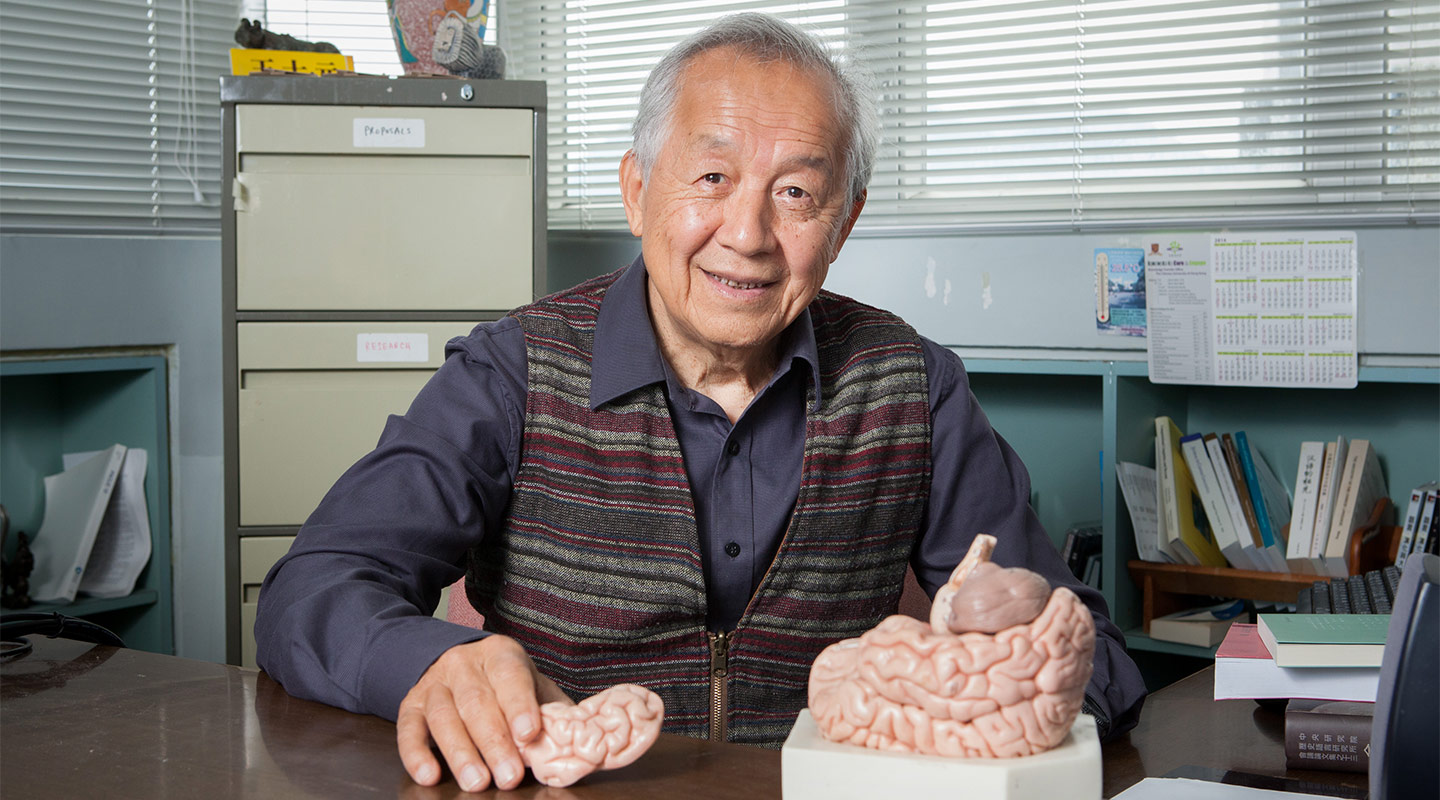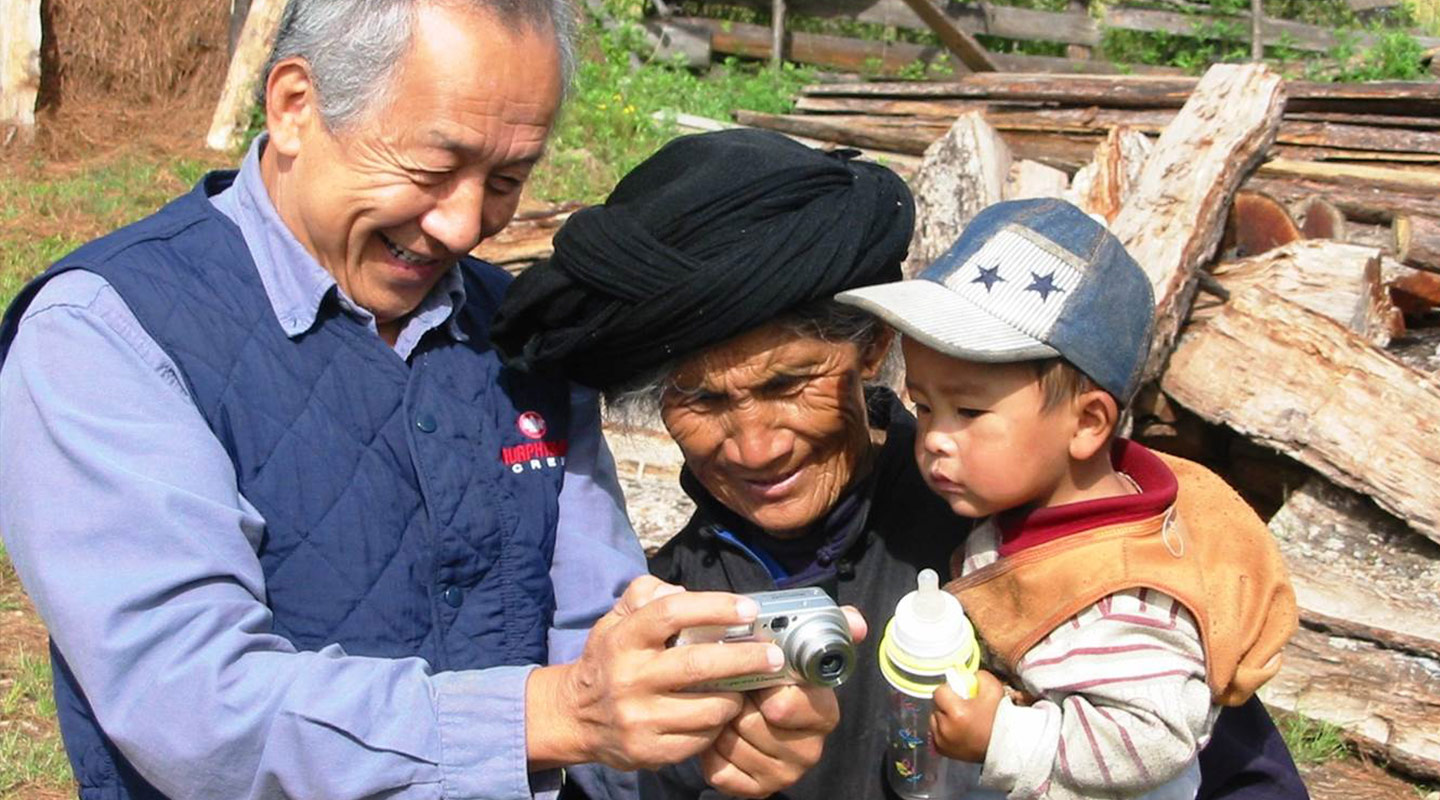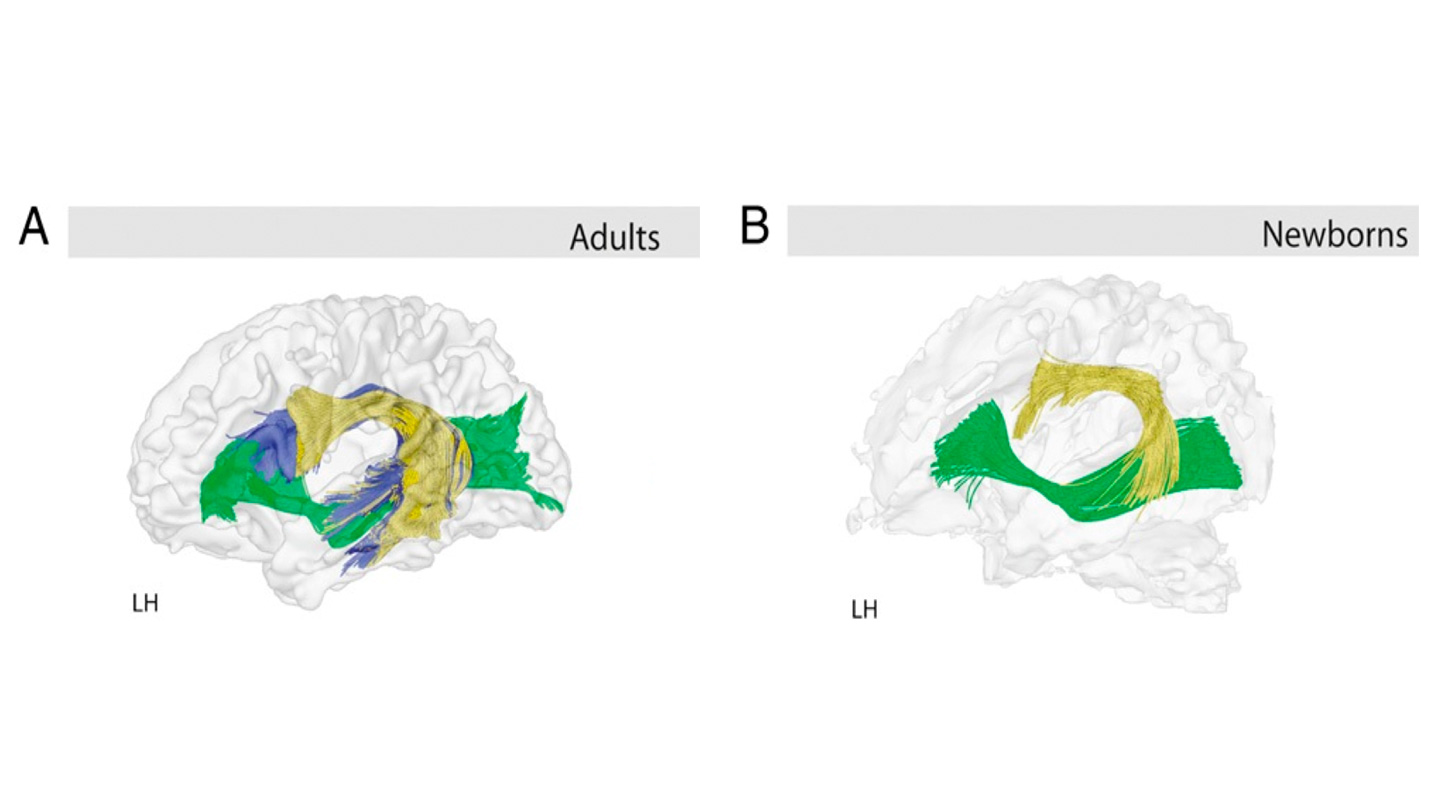Dear readers, With the launch of e-newsletter CUHK in Focus, CUHKUPDates has retired and this site will no longer be updated. To stay abreast of the University’s latest news, please go to https://focus.cuhk.edu.hk. Thank you.
The Complex Laws of Nature, Simply Stated

Prof. William S-Y. Wang
Joint Research Centre for Language and Human Complexity
In the academic world where knowledge is increasingly compartmentalized, research papers are often written for one's peers within a narrow stretch of intellectual terrain who carry on the same business with the same technical vocabulary. One therefore does not expect to come across quotings from, say, the Chinese anthropologist Fei Xiaotong and the astrophysicist Stephen Hawking in one essay, or a painting by Paul Gauguin and a picture of the adult vs the newborn brain in the same set of presentation slides, that is, unless it was from Prof. William S-Y. Wang.
Professor Wang is research professor in the Department of Electronic Engineering at CUHK. He has devoted his long academic career to the studying of the emergence and evolution of human speech and collaborated with scholars from linguistics, cognitive neuroscience, genetics, anthropology and computer science, to name but a few. It is as if he has been taking aim at the big questions and adopting a multidisciplinary approach from the very first day of his research.
Human language in all its myriad forms is the linchpin of Professor Wang's research. It is important to our private and public communications, within the dual perspectives of evolution theory and complexity theory. To Professor Wang, language is a mental instrument for representing the world, unique to our species whose evolutionary trajectory began with erect posture over three million years ago. The trajectory accelerated sharply as our social and physical environments became increasingly diverse and complex. Thus language is not a static or closed system but rather builds upon and integrates many biological and social behaviours, especially respiration, mastication, remembering, and reasoning. Language is a complex adaptive system (CAS) with several interacting subsystems such as phonology, grammar, lexicon, etc., each constantly adapting and self-organizing to changes in our daily lives. Other examples of CAS include the stock market, the brain and the ecosystem.

Professor Wang's fieldwork has taken him to many parts of the world including some remote regions in China where he witnessed for himself the cultural and linguistic heterogeneity in China. At the same time, in the face of massive urbanization and globalization, he saw that many minority languages or dialects are under threat of dying out. He says, 'Most of us realize the importance as well as the urgency of maintaining the biodiversity of the globe we live in, but few of us see that the same applies to our cultural and linguistic diversity.' The Yunnan Province had invited him for a comprehensive tour of the endangered languages there, and made a half-hour film of the visit.
However, all is not lost and some adaptive changes seem to be at work. Professor Wang acknowledges that some dialects are being revived or even popularized by, curiously enough, modern media and communication technology. Jin Yucheng's popular novel Fan Hua, which depicts Shanghainese life from the 1960s, has made speaking the Shanghai dialect something attractive and voguish. Wang Jing's film Feng Shui, depicting the trials and tribulations of a woman from Wuhan, has made the Wuhan dialect sound familiar and acceptable to hearers from outside that part of China. The new media have also helped to preserve vernaculars which are on the verge of becoming extinct. The extremely popular mobile app game 'Crazy Dialects' challenges users to identify and decipher progressively arcane and little-known dialects spoken in China. Professor Wang was quoted in the China Daily (8 December 2013) as saying, 'Language preservation is largely a spontaneous bottom-up process. The multimedia are a healthy and inevitable step.' One simply has not seen enough of the birth, growth, decline and death of languages.
Professor Wang is the director of the newly established Joint Research Centre for Language and Human Complexity (JRCLHC) at CUHK. It is a joint effort of three partnering institutions: CUHK, Peking University and the University System of Taiwan, with the objective to pool the expertise and resources of the three partners for strategic studies of language as a complex adaptive system. Professor Wang has long collaborated with linguists at Peking University on fieldwork in Yunnan, and with cognitive neuroscientists at the University System of Taiwan on laboratory experiments on language processing. A central mission of JRCLHC is to interweave the research from these two symbiotic approaches in linguistic research. The three partners of JRCLHC are already offering a non-credit course at CUHK on the biological foundations of language, which is drawing students from various disciplines at several Hong Kong universities.

Various aspects of human complexity, e.g., politics, human relationship, education, health care, etc., are mediated by and constituted in language. But Professor Wang cautions that most prevailing models of human behaviour and psychology are products of a Eurocentric conception, that is, the samples of facts and observations are taken from Western, Educated, Industrialized, Rich, and Democratic (WEIRD) populations. Perhaps too obvious to state, our world or reality is more complex than that. One of the goals of JRCLHC is to examine human complexity with emphasis on various Chinese languages and dialects. Special attention will be paid to features not commonly found in European languages and culture, including the lexical use of tones, a rich system of classifiers, a relatively simple morphology, and writing in thousands of sinograms.
With the establishment of JRCLHC, Professor Wang will continue to take on the grand challenge of answering the questions once posed by Gauguin: 'Where did we come from?', 'What are we?', and 'Where are we going?'. He is convinced that language plays a pivotal role toward answering all three questions.
This article was originally published in No. 435, Newsletter in Apr 2014.